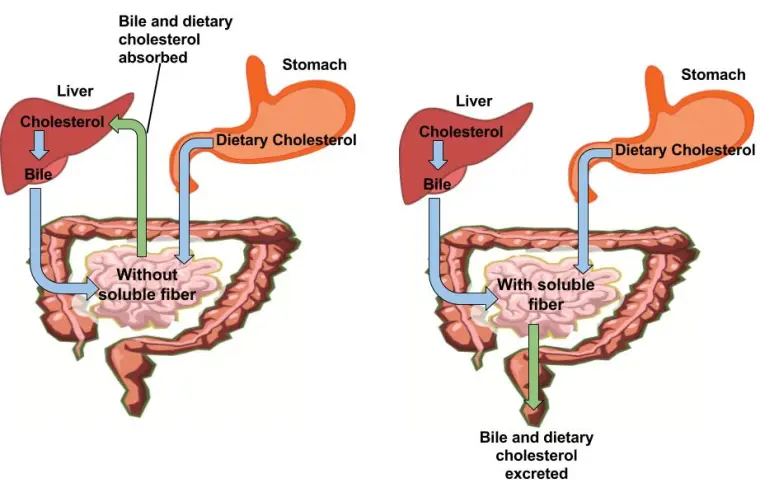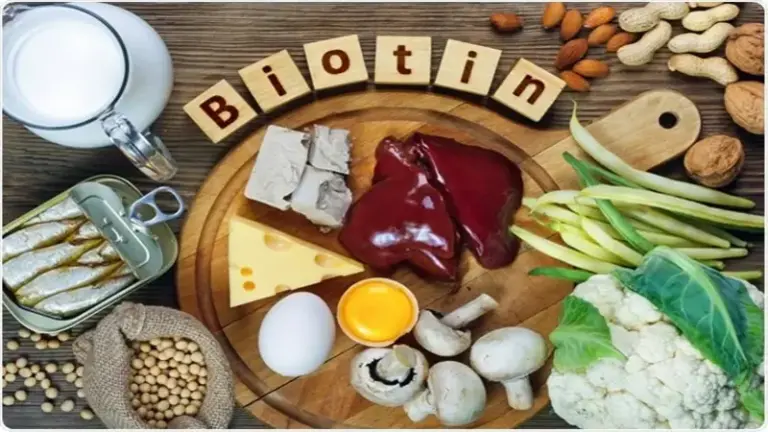Maintaining a healthy weight is a goal for many individuals, and incorporating dietary strategies that support weight management is essential. One such strategy involves increasing the consumption of dietary fiber. Fiber is a crucial nutrient found in plant-based foods that offers a range of health benefits, including its potential to aid in weight management. By understanding the role of fiber and incorporating fiber-rich foods into our diets, we can harness its potential to support healthy and sustained weight loss.
In this article, we will explore the role of fiber in weight management, examining its impact on appetite control, digestion, metabolic health, and long-term weight loss
Understanding Dietary Fiber
a) Types of Fiber: Fiber is classified into two main types: soluble and insoluble fiber. Soluble fiber dissolves in water and forms a gel-like substance, while insoluble fiber does not dissolve and adds bulk to the stool. Both types are important for overall health and weight management.
b) Food Sources of Fiber: Fiber is predominantly found in plant-based foods, such as fruits, vegetables, whole grains, legumes, nuts, and seeds. Incorporating a variety of these foods into the diet ensures an adequate intake of fiber.

Role of Fiber and Appetite Control
a) Increased Satiety: High-fiber foods tend to be more filling due to their volume and ability to absorb water. This increased satiety can help reduce overall calorie intake, making it easier to maintain a healthy weight.
b) Delayed Gastric Emptying: Soluble fiber slows down the emptying of the stomach, leading to a prolonged feeling of fullness. This can prevent overeating and aid in portion control.
c) Role of fiber in Regulation of Hunger Hormones: Fiber can influence the secretion of hormones involved in hunger and fullness, such as ghrelin and leptin. By modulating these hormones, fiber can help regulate appetite and reduce cravings.
Fiber and Digestion
a) Role of fiber in Improved Digestive Health: Insoluble fiber adds bulk to the stool, promoting regular bowel movements and preventing constipation. Adequate fiber intake supports a healthy digestive system, reducing the risk of gastrointestinal disorders.

b) Gut Microbiota Health: Fiber acts as a prebiotic, nourishing beneficial bacteria in the gut. A healthy gut microbiota is associated with improved digestion, enhanced nutrient absorption, and a reduced risk of obesity.
Role of Fiber in Metabolic Health
a) Role of fiber in Blood Sugar Control: Soluble fiber forms a gel-like substance that slows down the absorption of sugar into the bloodstream. This helps regulate blood sugar levels, preventing spikes and crashes that can contribute to overeating and weight gain.
b) Improved Insulin Sensitivity: High-fiber diets have been linked to improved insulin sensitivity, reducing the risk of insulin resistance and metabolic disorders such as type 2 diabetes.
c) Lowered Cholesterol Levels: Soluble fiber can bind to cholesterol in the digestive system, aiding its excretion and helping to lower levels of LDL (bad) cholesterol. Maintaining healthy cholesterol levels contributes to cardiovascular health and overall well-being.
Long-Term Weight Loss and Fiber
a) Role of fiber in Reduced Energy Density: High-fiber foods tend to have a lower energy density, meaning they provide fewer calories for a given volume of food. This allows individuals to feel satisfied while consuming fewer calories, supporting sustained weight loss.
b) Mindful Eating and Portion Control: Fiber-rich foods often require more chewing, slowing down the eating process. This promotes mindful eating and allows time for satiety signals to reach the brain, reducing the likelihood of overeating.
c) Healthy Food Choices: Fiber-rich foods, such as fruits, vegetables, and whole grains, are typically nutrient-dense and offer a range of vitamins, minerals, and antioxidants. Incorporating these foods into the diet encourages healthier eating patterns overall.

Practical Tips for Increasing Fiber Intake
a) Gradual Increase: Start by gradually increasing fiber intake to allow the digestive system to adjust. Sudden and significant increases in fiber intake may lead to digestive discomfort.
b) Whole Foods: Focus on incorporating whole foods rather than relying solely on supplements or processed fiber sources. Whole foods provide a wider array of nutrients and health benefits.
c) Varied Fiber Sources: Include a variety of fiber-rich foods in the diet to obtain different types of fiber and maximize nutritional benefits.
d) Hydration: Increase water intake when consuming more fiber to aid in digestion and prevent constipation.
Dietary fiber plays a vital role in weight management by promoting feelings of fullness, regulating appetite, supporting healthy digestion, and improving metabolic health. By incorporating fiber-rich foods into our diets, we can harness these benefits and support healthy and sustained weight loss. Increasing fiber intake is a practical and effective approach that encourages mindful eating, portion control, and a focus on nutrient-dense whole foods. However, it is essential to remember that a balanced and varied diet, along with regular physical activity, is key to overall weight management.
Consulting with a healthcare professional or registered dietitian can provide personalized guidance on incorporating fiber into your diet and optimizing your weight loss journey. Embracing the power of fiber can pave the way for a healthier lifestyle and foster sustainable weight management for years to come.
(Disclaimer: The information given here is based on general information. Before adopting it, definitely take medical advice. THE MONK does not confirm this.)
































